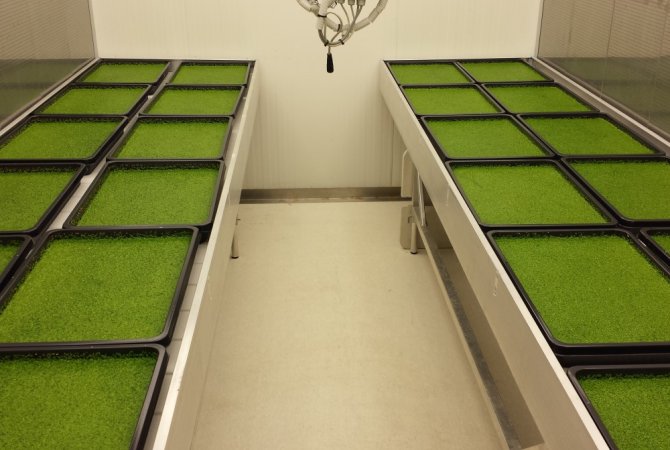
Project
Duckweed as a new sustainable source of protein for human consumption
Duckweed is the smallest flowering plant on earth, which floats on still water. It is a unique plant, capable of reproducing very rapidly, containing large amounts of protein that does not require any farm soil to grow. It is one of the plant species capable of producing the most biomass per hectare. Due to the high level of protein, it is six times more efficient than soy, which causes large scale deforestation.
Since it has a perfect amino acid composition, it can also serve as a high-value source of proteins for human consumption. Besides, duckweed contains high levels of various health beneficial substances, such as minerals, vitamins and anti-oxidants.
Source of protein
Duckweed could be used on a global scale as a new source of proteins. It could thus contribute to a sustainable solution to the impending global shortage of proteins. In her search for new plant-based proteins, researcher Ingrid van der Meer discovered duckweed. The plant is not yet deemed fit for human consumption as it classified under ‘Novel Food’. This means that further scientific research and a substantiated risk assessment is required before it can be released for the food market.

Plan of action
For the research conducted by Wageningen University & Research, funded by the Goeie Grutten Foundation, WUR will apply for a legal permit for the human consumption of the plant from the European Food Authority. Research will be done on new food products containing duckweed, to assess their quality, taste, texture and nutritional value. This will provide insight into the opportunities and possible drawbacks for large-scale implementation in the food industry. Furthermore, consumer studies will be conducted, and a societal debate will take place on food security and how the sustainability of local products may be improved from a local to a global scale.
Expected result
This multidisciplinary study strives to launch duckweed as a new, sustainable and protein-rich crop that can contribute to food security for the increasing world population.